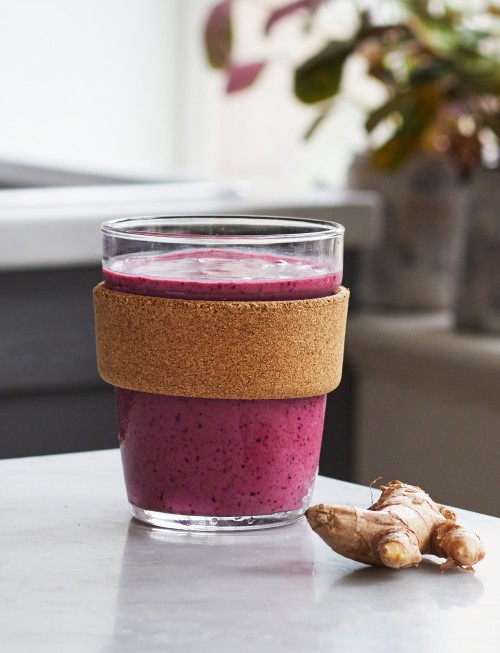We often think of stress as being a wholly psychological issue, but there are also many known physical symptoms. These physical symptoms arise when the hormones cortisol and noradrenaline/norepinephrine are released into our bloodstream at times of stress. Being in this ‘stress mode’ (also known as ‘fight, flight or freeze’) can affect our entire body, but it especially influences our energy, sleep cycles, immune system, appetite, and digestion.
The gut is one of the organs most affected by our stress response, and many people will report digestive symptoms being the first thing they notice during stressful times. Commonly these symptoms appear as changes to bowel movements and appetite as well as bloating, indigestion, cramps, or nausea.
How does stress impact the gut?
Our gut thrives when the body is in the ‘rest and digest’ or ‘parasympathetic’ mode. In this state our microbiome can flourish, our enzymes break down food, the gut wall absorbs nutrients, and our gut immune system effectively eradicates bugs and viruses. The problem with our natural stress response is that it switches off the favoured ‘para-sympathetic’ mode, meaning that the digestive system cannot do these vital jobs as efficiently.
Short-term versus long-term stress
Short-term stress (e.g. pressure at work, being late for something important or an argument) can activate our ‘fight or flight’ response; which results in that adrenaline-fuelled feeling you may be familiar with. Alongside sweaty palms, an increased heart rate, heightened awareness and excess nervous energy, we can find our appetite changes and sometimes we may experience diarrhoea. It is important to note that it is normal to have these moments now and then and we should bounce back relatively quickly when the acute stress goes away.
On the other hand, long-term or chronic stress can have a more profound impact on our digestion by regularly triggering the ‘sympathetic’ nervous system. This prioritises our survival over general daily body functions and when activated, the body may not release adequate enzymes into the gut to allow us to digest food properly - bloating, indigestion and changes to our bowel movements can then occur. The all-important gut microbiome may be influenced, and research has found that stress hormones can change the composition of the bacteria in our microbiome (1). Stress hormones also increase inflammation, which can have numerous negative implications for our gut health and there is also some research suggesting stress can lead to a phenomenon called ‘leaky gut’, which may trigger our immune system and cause more inflammation (2)(3). These may be reasons why IBS accompanies a high proportion of psychiatric disorders (4)(5).
The gut-brain connection
Another interesting element to add to the mix is that whilst a stressed brain can influence our gut health, an imbalanced gut can also impact our stress levels. Put simply, it works both ways! Research has shown that our brains and our gut are very closely linked and communicate in both directions via the ’gut-brain axis’. This network is incredibly complex and relies in part on the vagus nerve (a nerve that directly connects the gut and the brain) as well as via chemical signalling in the blood via hormones, immune compounds, and even in our gut bacteria. All of this means that the state of our gut, and in particular our gut bacteria can influence our mental health – from low mood and increased anxiety (6) to faster brain ageing (7). Many studies have been conducted in this area, and as a result, a new class of probiotics that supports the mind has been developed - coined as ‘psychobiotics’ (8). Although some of the studies have only been conducted on mice, there have been some recent human trials showing that taking probiotic supplements is associated with fewer symptoms of anxiety, depression and panic (9). A recent double-blind placebo-controlled study conducted at the University of Oxford found that when people experiencing low mood were given a probiotic for a month, they experienced a 50% improvement in their mood compared to the placebo group. They also showed better concentration and less cortisol in their saliva, a sign that they might be able to better regulate their stress response (10).
How does stress impact our food choices?
Studies show that the quality of our diet decreases when we are anxious or depressed and that the worse the diet, the worse the symptoms (11). Stress saps both appetite and energy, which means we can often choose sugar-laden, carb-heavy foods to satisfy low energy. Convenience foods are also appealing when short on time and many of us crave comfort foods when feeling stressed. These tend to be high in calories, sugar, trans fats, and flavourings, whilst equally low in nutrients and slow-release energy.
As well as this, it is common to crave caffeine when stressed, but this can further perpetuate the problem and lead to blood sugar crashes in the afternoon, which in itself is another trigger for physiological stress (12). What role can food play in helping to support during stressful times? The good news is that while we can’t always control the external factors that create stress in our lives, there is a lot we can do from a nutritional perspective to help our bodies better manage stress.
Here are four tips to help combat stress using your diet.
1. Choose wholegrains and get protein with every meal
This aids blood sugar stability and helps prevent sugar crashes. In turn, the likelihood that you’ll reach out for sweeter snacks mid-afternoon is then reduced. Protein and wholegrain at mealtimes can also help support healthy sleep cycles–essential to helping us combat stress in the long term. Aim to choose wholegrains such as brown rice, quinoa, brown bread, brown pasta, or spelt over their white counterparts, and it’s always a good idea to add an extra source on top to keep blood sugar stable; toasted nuts and seeds, nut butter, tahini, ready-cooked lentils/beans, frozen edamame or peas are all easy and nutritious.
2. Eat to support your gut bacteria
The gut microbiome is the digestive system's bacterial ecosystem and is a fantastic marker of gut health. Because fibre acts as a fuel source for our gut bacteria, the best way to support a healthy microbiome is to get plenty of it in our diets. Vegetables, fruit, grains, pulses, and nuts all feed different strains of bacteria, and the wider variety of fibre we eat, the more diversity we should have within our microbiome. The greater the diversity of our microbiome, the better. Anti-inflammatory herbs and spices are also great - try turmeric, ginger and cinnamon. Healthy gut bacteria can also help us feel calm and may even discourage anxiety (13). Consuming foods that contain beneficial bacteria have also been shown to help support our microbiome, which in turn has a positive impact on our gut health (14) - kefir, kimchi, sauerkraut, pickled veggies (e.g. onions or piccalilli) and probiotic yoghurt are all good options. Probiotics may also positively impact our mood and anxiety (15). You can look into taking a good quality probiotic if you feel it is necessary, though we suggest chatting to an expert about this first.
3. Manage your caffeine intake
As mentioned earlier, we sometimes reach out for coffee and tea to get us through stressful times. Sadly though, caffeine triggers the release of that familiar stress hormone cortisol, which can lead to anxiety, poor sleep, and low energy, and in some cases, it can precede panic attacks (16). It has also been suggested that some people with anxiety disorders may have heightened sensitivity to caffeine (17). If you’re replacing meals with coffee or tea or using it to ‘power through’ then start to cut back slowly where possible to 1 or 2 per day. Nutritious snacks which include fibre, protein and healthy fats, and a cup of caffeine-free tea or green tea can be a great replacement for your usual latte or cup of tea. Be sure to cut out caffeine completely after 3pm, especially if your sleep is disturbed.
4. Eat magnesium-rich foods
Magnesium has many roles in the body and is especially important for our nervous systems because it triggers our ‘rest and digest’ mode. Magnesium helps to relax our muscles and encourages the release of calming neurotransmitters such as GABA, which supports restful sleep cycles. Additionally, studies have found that magnesium deficiency can contribute to depression, anxiety, and nervousness (18) and that taking magnesium can reduce circulating cortisol levels (19), and improve our response to stress (20). We have a higher demand for magnesium during stressful times, so regularly eating foods such as green leafy veggies, cashews, pumpkin seeds, raw cacao, banana, black beans and chickpeas is a good idea. Bathing in Epsom salts may also help as they contain magnesium sulphate, which can be absorbed through the skin.
References
1. Thomaz F.S Bastiaanssen, Anand Gururajan, Marcel van de Wouw, Gerard M Moloney, Nathaniel L Ritz, Caitriona M Long-Smith, Niamh C Wiley, Amy B Murphy, Joshua M Lyte, Fiona Fouhy, Catherine Stanton, Marcus J Claesson, Timothy G Dinan, John F Cryan, Volatility as a Concept to Understand the Impact of Stress on the Microbiome
2. Popa S-L, Dumitrascu DL. Anxiety and IBS Revisited: Ten years later.
3. Clapp M, Aurora N, Herrera L, Bhatia M, Wilen E, Wakefield S. Gut microbiota's effect on mental health: The gut-brain axis.
4. Fadgyas-Stanculete M, Buga AM, Popa-Wagner A, Dumitrascu DL. The relationship between irritable bowel syndrome and psychiatric disorders: from molecular changes to clinical manifestations.
5. Foster JA, Rinaman L, Cryan JF. Stress & the gut-brain axis: Regulation by the microbiome.
6. Tillisch, K., Mayer, E. , Gupta, A. , Gill, Z. , Brazeilles, R. , Le Nevé, B. , van Hylckama Vlieg, J. , Guyonnet, D. , Derrien, M. & Labus, J. (2017). Brain Structure and Response to Emotional Stimuli as Related to Gut Microbial Profiles in Healthy Women.
7. Luan Zhe, Sun Gang, Huang Yun, Yang Yunsheng, Yang Ruifu, Li Congyong, Wang Tingting, Tan Di, Qi Shirui, Jun Chen, Wang Cong, Wang Shufang, Zhao Yiming, Jing Yujia. Metagenomics Study Reveals Changes in Gut Microbiota in Centenarians: A Cohort Study of Hainan Centenarians.
8. Nhan Tran, Masha Zhebrak, Christine Yacoub, Joseph Pelletier, Darby Hawley. The gut-brain relationship: Investigating the effect of multispecies probiotics on anxiety in a randomized placebo-controlled trial of healthy young adults.
9. Phil Burnet. The Effects of a Probiotic on Emotional and Cognitive Processing in Participants Experiencing Low Mood.
10. Gibson-Smith D, Bot M, Brouwer IA, Visser M, Penninx BWJH. Diet quality in persons with and without depressive and anxiety disorders.
11. Sejling AS, Kjaer TW, Pedersen-Bjergaard U, Tillisch K, Labus J, Kilpatrick L, et al. Consumption of fermented milk product with probiotic modulates brain activity.
12. Iebba V, Totino V, Gagliardi A, Santangelo F, Cacciotti F, Trancassini M, Mancini C, Cicerone C, Corazziari E, Pantanella F, Schippa S. Eubiosis and dysbiosis: the two sides of the microbiota.
13. Bambury A, Sandhu K, Cryan JF, Dinan TG. Finding the needle in the haystack: systematic identification of psychobiotics.
14. Nardi AE, Lopes FL, Freire RC, Lee MA, Cameron OG, Greden JF. Anxiety and caffeine consumption in people with anxiety disorders.
15. Pickering G, Mazur A, Trousselard M, Bienkowski P, Yaltsewa N, Amessou M, Noah L, Pouteau E. Magnesium Status and Stress: The Vicious Circle Concept Revisited.
16. Held K, Antonijevic IA, Künzel H, ,20. Boyle NB, Lawton C, Dye L. The effects of magnesium supplementation on subjective anxiety and stress—a systematic review.
Disclaimer
If you are suffering from stress or a mental health problem, reach out to your healthcare expert. Certain supplements are used for different reasons and a one-size-fits-all approach shouldn’t be adopted. In addition, pregnant women and anyone on medication should always consult a doctor before embarking on a new diet or supplement programme. As with all information on Deliciously Ella, this is no substitution for individual medical or nutritional advice.
 Membership
Membership Our Story
Our Story



















